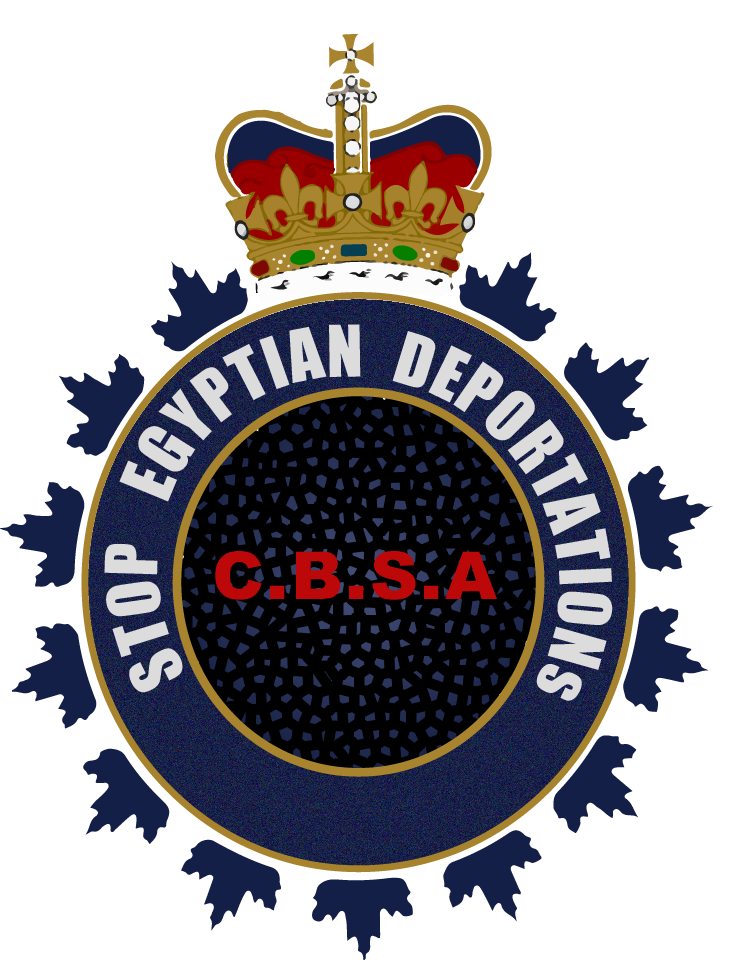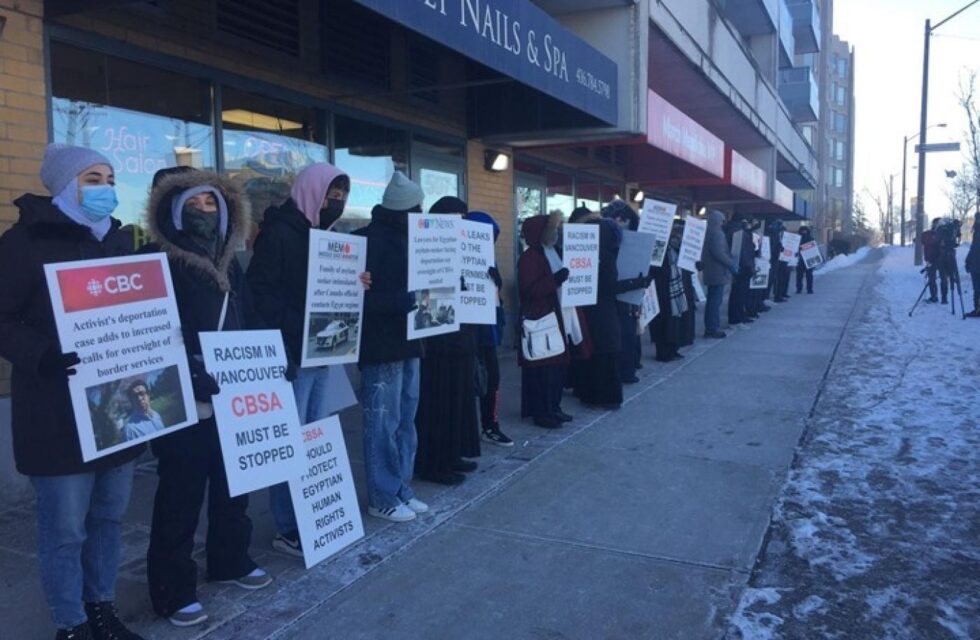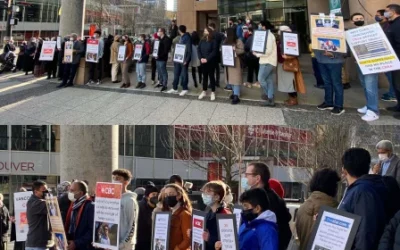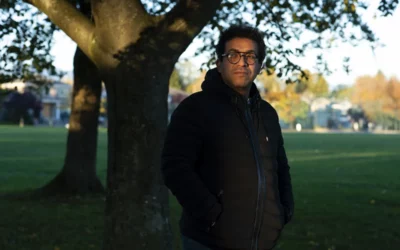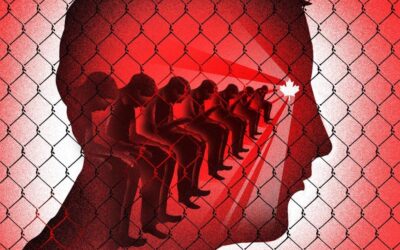Mohammad Ayesh
January 31, 2022
Middle East Eye
Middle East Eye – Dozens of Arab and Egyptian demonstrators on Saturday protested in four Canadian cities against attempts to deport asylum seekers back to Egypt, London-based news outlet Arabi21 reported. Middle East Eye
The protests were organised in Vancouver, Toronto, Ottawa and Montreal by the Egyptian Canadian Coalition for Democracy (ECCD).
The protests coincided with Canada’s National Day of Remembrance of the Quebec City Mosque Attack and Action Against Islamophobia.
ECCD said that the Canada Border Services Agency (CBSA) in Vancouver has singled out five Egyptian families to stop them from gaining asylum or refugee status.
One of the people affected told Arabi21 that border police used “fabricated allegations” in their case, relying on “false reports derived from research centres funded by the current Egyptian regime”.
The CBSA in Vancouver has been accused in the past of attempting to deport Egyptian rights activist Abdelrahman Elmady using his political affiliations against him.
“The Canadian constitution and law support the values of freedom, justice, equality, pluralism and acceptance of others without discrimination or racism,” Hossam ql-Mutaim, political activist and member of ECCD, told Arabi21.
“But there are many inquiries raised recently after recurrent rejections of many asylum applications, especially for applicants coming from the Middle East and Egypt in particular.”
Ben Ali’s loot tracked down
An investigation by London-based Al-Araby TV revealed how the family of late president Zine El Abidine Ben Ali managed to keep the money that was looted during his 23-year rule despite attempts to recover it by successive Tunisian governments.
Ben Ali’s family was able to keep most of the wealth they amassed over years and disrupt the judicial process seeking to recover the looted funds, according to the investigation.
The documentary highlighted the influence Ben Ali’s family enjoyed within the institutions of the state after he was ousted by the Tunisian revolution in 2011.
One of the figures that the investigation followed was Ben Ali’s son-in-law Marouane Mabrouk.
The investigation claims that French President Emmanuel Macron pressured the government of former prime minister Youssef Chahed to request the European Union (EU) to lift its freezing of funds linked to Mabrouk.
Al-Araby obtained a confidential document revealing a correspondence from the government of Chahed requesting the EU in November 2018 to lift the ban on Mabrouk, which was later accepted by Brussels.
Syrian medical crisis
Syrians in government-controlled areas face a health crisis due to the lack of medical equipment in public hospitals, London-based Al-Araby Al-Jadeed newspaper reported.
Anaesthesiologist Ammar al-Ali told Al-Araby Al-Jadeed that government hospitals in Syria, especially in the capital Damascus, have not obtained new medical equipment since 2011, adding that most devices are out of service or in very poor condition.
Al-Ali said that the Syrian government relies on used medical equipment imported from abroad through illegal means, saying that “these devices can be brought in from Lebanon and the opposition-controlled territories”.
Abbas al-Ahmad, a medical devices maintenance technician, told Al-Araby that people are now forced to resort to UN-run treatment centres and private hospitals, despite the high cost.
The Syrian government blames western sanctions imposed on Damascus for the shortage.
*Arabic press review is a digest of news reports not independently verified as accurate by Middle East Eye
Related Articles
A protest against a brutal regime
The Imprisoned Blogger - People gathered on the streets protesting discrimination by a regime that has violated every human right you could conjure...
New human-rights campaign targets Canadian practice of holding some asylum seekers in jails
The Globe and Mail - Human Rights Watch and Amnesty International are launching a campaign urging Canadian provinces to cancel arrangements with the...
Canada: Stop Incarcerating Immigration Detainees in Provincial Jails
Human Rights Watch (Ottawa) – Provincial governments should sever their contracts to hold immigration detainees in provincial jails, where many...
